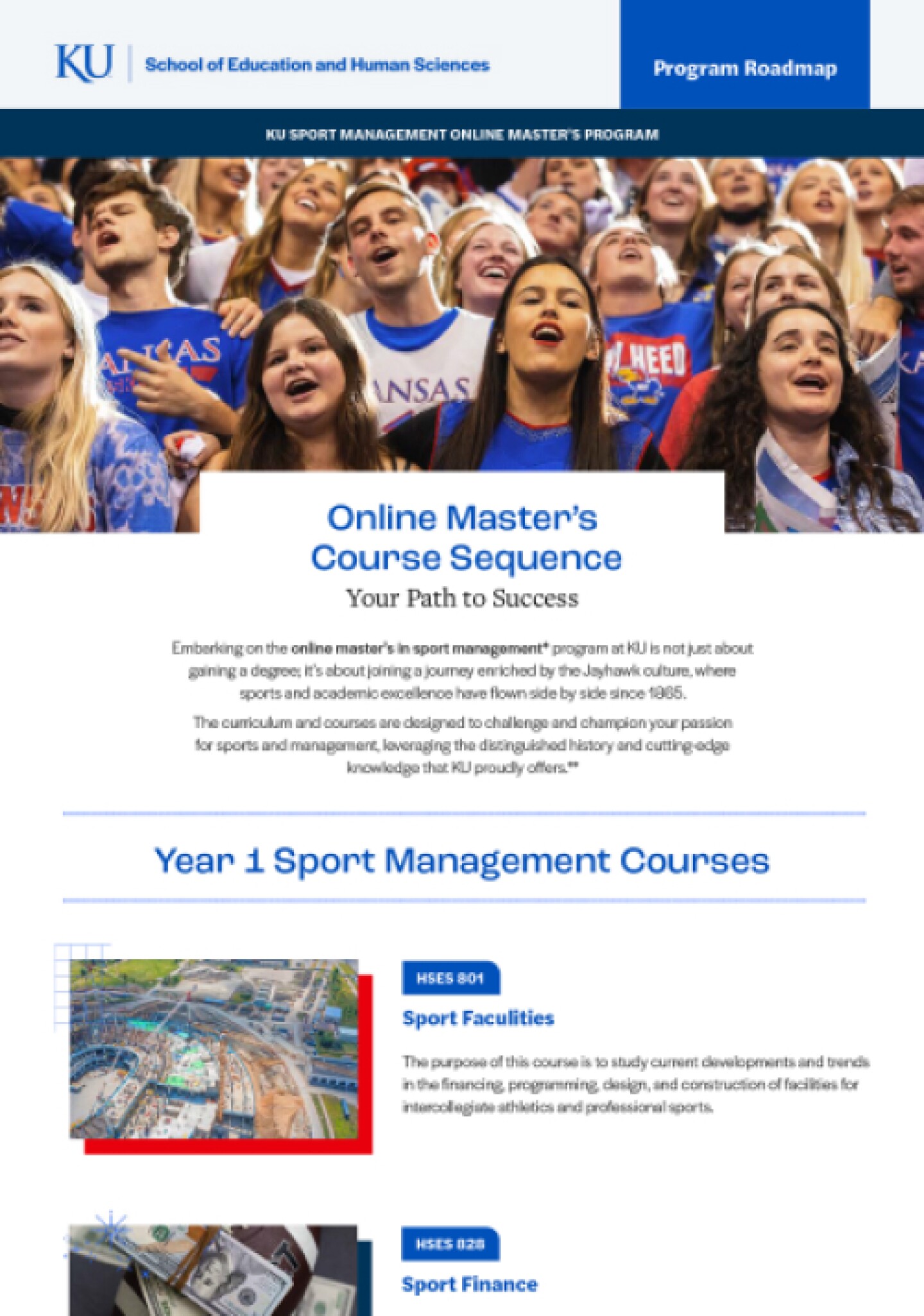Career-focused sports management courses at KU
The online master’s in sport management* at the University of Kansas brings our unique sports history to the online curriculum, helping our students make connections directly in the area of the sports industry they intend to work in. The sport management classes offered by KU help prepare you for a variety of roles within the professional world of sports, from player personnel and team management, to event management, sport marketing, and beyond.
In as few as two years, students can complete the 36 credits they need to earn their master’s degree as they work to complete a portfolio that aligns with the competencies of the North American Society for Sport Management (NASSM).
Each course is worth 3 credits unless noted otherwise, and students complete six courses per academic year.
*This program is a Master of Science in Education (M.S.E.) in health, sport management, and exercise science with an emphasis in sport management.
Year 1 Sport Management Courses
HSES 801 Sport Facilities
HSES 830 Socio-Cultural Dimensions of Sport
HSES 831 Ethics in the Sport Industry
HSES 840 Organizational Behavior in Sport
HSES 828 Sport Finance
HSES 842 Sport Marketing
Year 2 Sport Management Courses
HSES 884 Legal Aspects of Sport
HSES 885 Sport Sponsorship
HSES 886 Sport Fundraising
HSES 896 Capstone in Sport Management
Internship Requirement
HSES 880 Internship in Sport Management
This course can be taken in any semester, by itself or alongside another course in the program.
Please note: The course list and sequence are subject to change. If you have any questions about the courses offered, please contact an admissions outreach advisor at 855-639-7799.

Your roadmap to success
This program guide provides an overview of the courses offered in the online master's in sport management program at the University of Kansas—a prestigious leader in academics and athletics.
Kick off your dream career in sport management
Through interactive learning, collaborative projects, one-on-one mentorship, and career programming, the University of Kansas master’s in sport management* will help you build relationships with classmates, expert faculty, and an alumni network that spans pro teams, collegiate athletics, agencies, and sport nonprofits.
Join us to experience:
- North American Society for Sport Management (NASSM) aligned curriculum
- Industry simulations and projects via Jayhawkville’s real-world scenarios
- A required, customizable internship
- One-on-one alumni mentorship and connections
*This program is a Master of Science in Education (M.S.E.) degree in health, sport management, and exercise science with an emphasis in sport management.
Take the Next Step
Master the Business of Sports
Ready to transform your passion for sports into a rewarding career? Join the ranks of successful KU sport management alumni making their mark across the sports industry.

